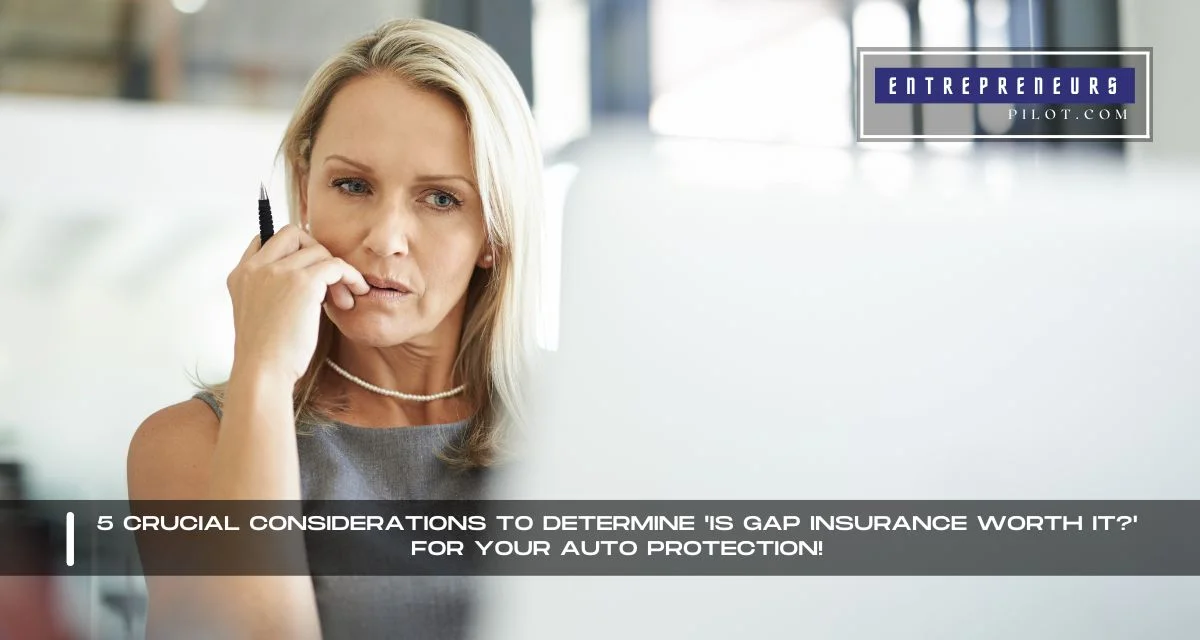Introduction
When it comes to protecting your vehicle, one question often arises: Is Gap Insurance Worth It? Understanding the value and implications of gap insurance is essential for any car owner, particularly if you’re financing or leasing your vehicle. This type of insurance can be a financial lifesaver, but it’s not always necessary for everyone.
In this article, we delve into five crucial considerations to help you determine whether gap insurance is a worthwhile addition to your auto protection plan. From assessing the depreciation of your vehicle to understanding your financial position, these key points will guide you in making an informed decision about gap insurance and ensuring that your investment in your vehicle is securely protected.
Table of Contents
1. Vehicle Depreciation Rate
The first thing to consider is how quickly your car depreciates. Gap insurance is more valuable for vehicles that depreciate faster, as it covers the difference between what you owe and the car’s current value if it’s totaled or stolen.
- For Expert Financial Insights And Guidance, You Can Visit Our Sister Site – ArabsGeek.com Now!
- Curiosity Piqued? Dive Into the Most Captivating Financial Content by Visiting Our Homepage!
- Unlock Exclusive Business Opportunities! 🚀 Connect with Us Now at our Email: [email protected]!
2. Loan Terms and Balance
Evaluate your loan terms and balance. If you have a long-term loan or put down a small down payment, you might owe more than your car’s worth at some point, making gap insurance a smart choice.
3. Financial Safety Net
Consider your financial situation. If you wouldn’t be able to pay the difference between your car’s value and your loan balance out-of-pocket, gap insurance could provide a crucial financial safety net.
4. Leasing Agreements
For those leasing a vehicle, gap insurance is often required. It’s an essential protection since lessees are typically not the outright owners of the vehicle but still responsible for the car in the event of a total loss.
5. Insurance Policy Coverage
Review your current auto insurance policy. Some comprehensive policies may cover a portion of the gap, reducing the need for additional gap insurance. However, it’s often not enough to cover the entire gap.
Conclusion
Deciding whether gap insurance is worth it involves a careful assessment of your vehicle’s depreciation, your loan terms, financial backup, leasing agreements, and existing insurance coverage. By considering these factors, you can make a choice that aligns with your needs and secures your financial well-being in the case of an unforeseen loss. Remember, gap insurance isn’t a one-size-fits-all solution, but in the right circumstances, it can be an invaluable component of your auto protection strategy.
Frequently Asked Questions
1. Can I purchase gap insurance after buying a car?
Yes, you can usually purchase gap insurance after buying a car, but it’s best to get it as soon as possible, especially if your car depreciates quickly.
2. Is gap insurance transferable if I sell my car?
Gap insurance is generally not transferable to a new vehicle, as it is tied to the specific car and loan agreement.
3. How long do I need gap insurance?
You should keep gap insurance until the amount you owe on the car is less than its actual cash value, at which point the gap risk diminishes.
4. Does gap insurance cover vehicle repairs?
No, gap insurance does not cover repairs. It only covers the difference between the car’s value and what you owe if the car is totaled or stolen.
5. How is the cost of gap insurance determined?
The cost of gap insurance depends on factors like your car’s value, depreciation rate, and your loan terms. It’s usually a small percentage of your total auto insurance premium.











